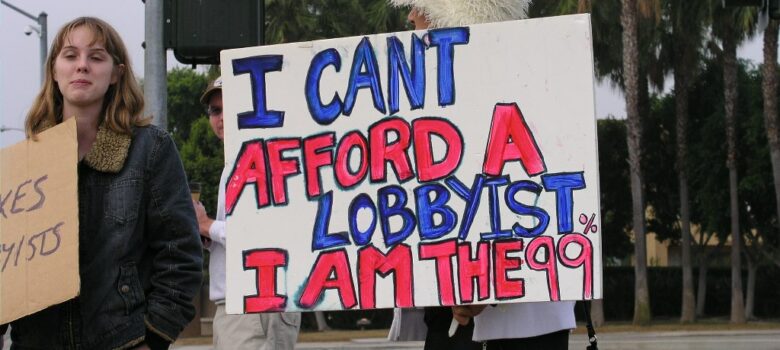Canadian Heritage Minister Pablo Rodriguez appeared at the CMPA’s Prime Time conference last week, calling on the film, TV and broadcast sectors to become even more vocal in defending his Bill C-11. The bill, which has been the top lobbying priority of the sector for years, opens the door to regulating user generated content and asserts jurisdiction over all audio-visual services worldwide. There are several elements worth noting in the question-and-answer session with Rodriguez, not the least of which is the insistence on inaccurately claiming the new bill addresses concerns with regulating user generated content. When asked about the issue, Rodriguez responded:
There’s people that will always be opposed to it…there was some concerns about social media, that’s true. And you know what, we listened, we took note, and we fixed it.
It is disappointing that Rodriguez has quickly adopted the same tactics used by Guilbeault in suggesting that criticism is founded in a desire to avoid regulation and by doubling down on the easily refuted claim that he has fixed the concerns about user generated content regulation. The “we fixed it” claim seems based on the premise that Canadians will simply stop reading his bill after Section 4.1 and not continue to Section 4.2, which plainly creates an exception to the exception that opens the door to CRTC regulation of user generated content.
Yet it was his call for more vocal lobbying that is particularly disconcerting. Echoing similar comments from former Canadian Heritage Minister Sheila Copps earlier in the conference, Rodriguez had the following exchange:
Q. During the height of debate last year, the opposition and some commentators criticized the Broadcasting Act legislation as being too broad and giving too much power to the CRTC. I’m wondering what your thoughts are on that criticism?
Rodriguez: Well again, it came from a lot of people who don’t want the bill at all. The problem is the bill was hijacked and it became about freedom of speech when the bill has nothing – absolutely nothing – to do with freedom of speech. Instead of talking about contributions to our culture and our productions, actors, film and television industry, we start talking about cat videos. Cat videos. It was surreal. I was in Parliament and I was looking at my colleagues and Steven Guilbeault having to get up and answer questions about cat videos.
But, they were extremely well organized. And that’s where “us” – and I mean you guys – were not vocal enough. So this time, I need you, we need you, all of those that support the bill, we have to be more vocal. We need those voices to be heard.
Q. That sounds like a call to action.
Rodriguez: It is. It is. It is a big call to action.
The suggestion that somehow proponents of the bill were drowned out during the Bill C-10 process is laughable. Indeed, the Canadian Heritage committee studying the bill scarcely heard from anyone who wasn’t a vocal supporter. In the process, digital first creators, Internet platforms, and a myriad of independent voices were actively excluded from the bill’s review.
Further, the claim that the bill was “hijacked” is an insult to the many Canadians who reasonably expressed concerns about the government’s decision to amend its own bill by removing the exclusion for user generated content. Indeed, Rodriguez can’t have it both ways, claiming on the one hand that he has fixed the concerns and on the other dismiss the concerns as nothing more than criticism from people opposed to the bill altogether.
But most troubling is Rodriguez urging a sector that includes Canada’s most powerful broadcasters to lobby on behalf of his own legislation. Broadcasters such as Bell and the CBC were already vocal proponents of the bill. When the minister responsible for regulating the sector calls on the same sector to lobby his government and the Canadian public in support of his own legislation, the wall between regulated and regulator is obliterated. In fact, if this is his approach on broadcast reform, what will he demand from Canada’s news media when he tables the legislation they’ve spent years lobbying for?
That the Heritage Minister has already dismissed criticism of Bill C-11 and falsely claimed that user generated content is fully excluded is disappointing but perhaps unsurprising. That he thinks it is acceptable to ask the sector to become self-interested cheerleaders for his legislation ultimately undermines not only the sector’s credibility but his own.










So “culture” is defined as “all the stuff that’s owned by multinational monopolies” now? That just seems wrong. We surely should own our own culture. Right now, the only part we do own is the “cat videos” part, but apparently that isn’t even “culture”…
The Minister has “falsely claimed that user generated content is fully excluded is disappointing but perhaps unsurprising.” To be disappointed is to have had better expectations of these people. His comments were neither disappointing nor surprising to me. Just business as usual.
and no opposition now to stop this as without otoole the conservatives’ seem fine with all this and are just doing what trumpers do
might as well pass this and s210 and then when the trumpers/ppc types realize what they should have been protesting against as well as conservatives it will be very quiet
ill start saving for my broadcast license